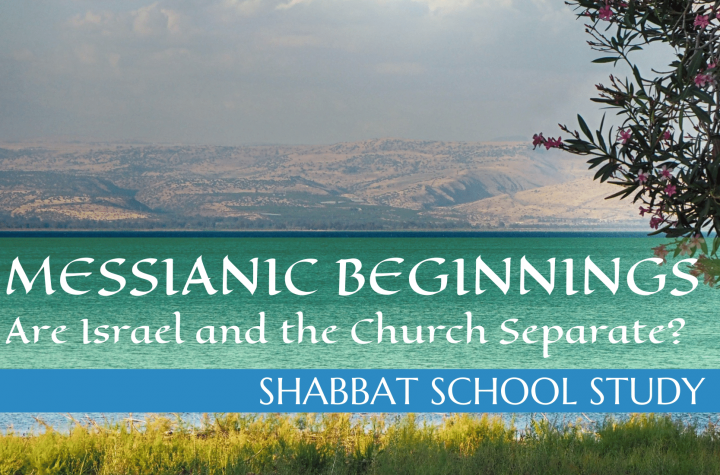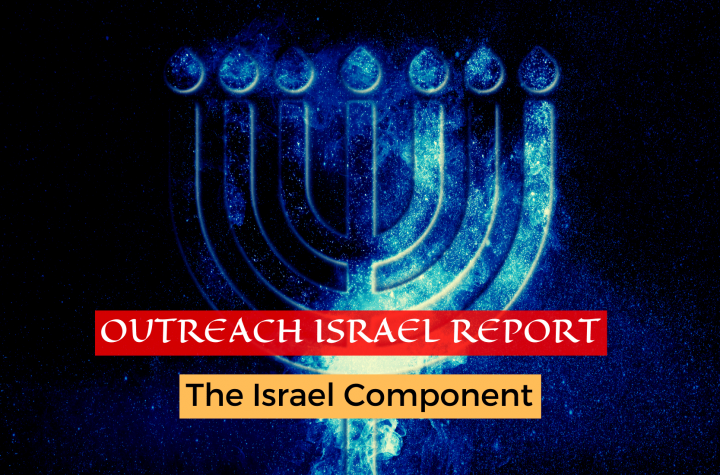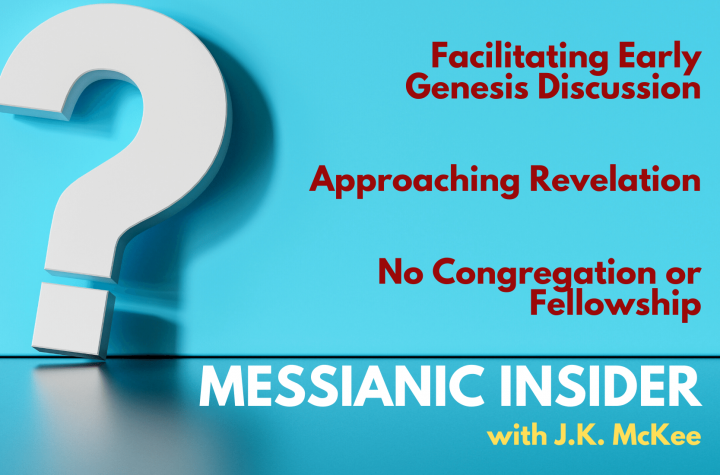We live in an increasingly complicated world. The mission of the Body of Messiah is to declare the good news of His salvation and make disciples. How do we make sure that we are not unnecessarily turning anyone away from the Kingdom?
Ecclesiology (People of God / the Assembly or “Church”)
J.K. McKee of Messianic Apologetics discusses some of the present issues in today’s Messianic community, as they concern ecclesiology or the makeup of the people of God.
Mark and Margaret Huey, and John McKee discuss some of the challenges and debates present in the Messianic community over ecclesiology, and how it is absolutely imperative that one have an Israel-centric reading of the Holy Scriptures.
J.K. McKee of Messianic Apologetics responds to three categories of questions: Tanach (OT), Apostolic Scriptures (NT), and theology/Biblical Studies.
1. What do you think is the best way to facilitate a plural discussion on views for Genesis 1-11?
2. I have noticed a trend in the Torah movement away from a pre-millennial reading of the Book of Revelation.
3. Why does your ministry not host its own local congregation or fellowship?
J.K. McKee of Messianic Apologetics goes through the six study questions for Unit Five in The Messianic Walk workbook:
1. What do you, and/or your family, expect to get out of being a part of a Messianic congregation? Have you fully considered all, or at least most, of the dynamics of what it means to be involved in the restoration of Israel?
2. What might be some of the similarities, but also differences, between a Messianic Jewish congregation, and (a) a Jewish synagogue, (b) an evangelical Protestant church? Speculate if necessary.
3. Are you concerned at the presence of false teachings within the Messianic movement? How might this affect your involvement in a Messianic assembly? (If necessary, describe your experience.)
4. Do you have the perseverance and fortitude to truly see your involvement with the Messianic movement through, to whatever God has intended for it?
5. In your estimation, how important is it for the Body of Messiah to experience unity? Why do you think people have a tendency to divide over what are ultimately minor issues?
6. While Jewish and non-Jewish Believers do have their differences—do you think it is useful for Messianic congregations to focus on differences first, or common faith first? Which approach do you think will encourage unity, mutual honor and respect, and a pooling of gifts and talents?




